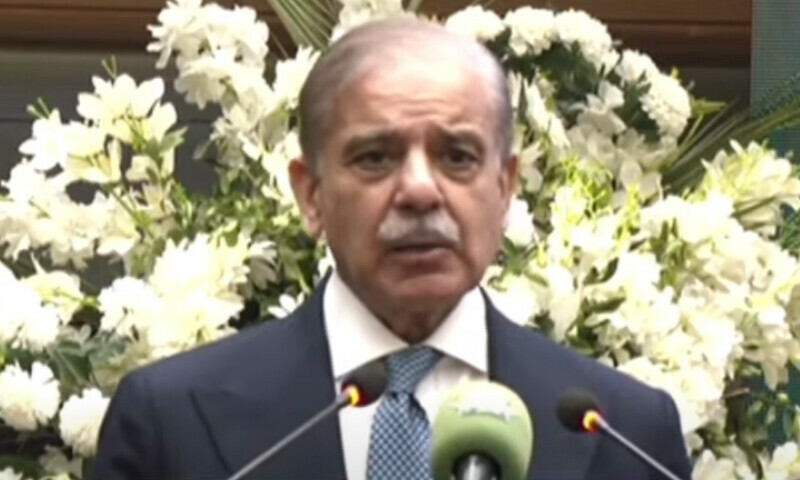PTBP Web Desk
The federal government has announced plans to convene the National Finance Commission (NFC) meeting on November 18, marking what officials describe as a “decisive step” toward formulating a new revenue-sharing formula between the Centre and the provinces.
The meeting is expected to be a turning point in Pakistan’s ongoing effort to secure fiscal stability and strengthen federal-provincial financial relations.
The session will be chaired by Finance Minister Muhammad Aurangzeb in Islamabad, with participation from provincial finance ministers, senior economic planners, and officials from the Finance Division. The central agenda: negotiating a new NFC Award — a constitutionally mandated mechanism that determines how national resources are distributed among the federation and provinces.
The upcoming session follows multiple delays in convening the 11th NFC since its official notification on August 22, 2024. Its maiden meeting, initially scheduled for August 28, was postponed at the request of the Sindh government, which cited ongoing flood recovery operations as the reason for unavailability.
A subsequent attempt to hold the meeting on November 10 was also postponed due to the unavailability of certain members. However, federal sources have confirmed that November 18 has now been finalized, and all provinces have confirmed participation.
“If the meeting proceeds as planned, it will mark a major leap forward in the NFC process,” said a senior finance official. “This is not just another policy dialogue — it’s a crucial effort to rebuild fiscal harmony and restore trust among the federation and provinces.”
The inaugural sitting of the 11th NFC is expected to review technical recommendations developed at the working level and approve the formation of specialized sub-groups. These sub-groups will focus on critical issues, including tax collection efficiency, fiscal transfers, public expenditure, and provincial autonomy.
Federal officials have confirmed that the upcoming discussions will set a “time-bound and outcome-oriented roadmap” for concluding the new NFC Award. The goal is to move beyond preliminary consultations and establish a structured framework for negotiations in the coming months.
According to the Finance Division, the government wants to ensure that future financial arrangements are based on transparency, data-driven assessments, and fiscal sustainability.
Officials involved in the process acknowledge that the Centre’s constrained fiscal space, coupled with soaring debt servicing costs and limited revenue growth, could make negotiations complex. Meanwhile, provincial governments are demanding greater fiscal autonomy, arguing that rising expenditures on health, education, and disaster management require a larger share of federal transfers.
“The NFC discussions are no longer optional — they are essential for the stability of Pakistan’s fiscal architecture,” remarked one senior official. “A balanced formula must ensure national cohesion while enabling provinces to meet their development needs.”
Pakistan has been operating under the 7th NFC Award, announced in 2009, which significantly increased the provincial share in the federal divisible pool from 47.5% to 57.5%. While hailed as a landmark step toward fiscal decentralization, the formula has also been criticized for limiting the Centre’s fiscal flexibility, especially amid growing debt obligations and rising defense and subsidy costs.
Economists argue that the absence of a new award for over a decade has resulted in a fiscal imbalance that hampers national policymaking. Revising the formula is therefore considered essential to restore equilibrium between revenue generation and expenditure responsibilities.
The new NFC discussions are expected to revisit criteria for resource allocation, such as population, poverty levels, revenue generation capacity, and development needs — key factors that form the basis of fiscal federalism in Pakistan.
Provincial representatives are expected to push for greater financial autonomy and timely release of funds, while the federal government will likely emphasize the need for enhanced tax collection and expenditure control at the provincial level.
Observers note that the upcoming meeting could define Pakistan’s medium-term fiscal trajectory, especially as the country seeks to comply with IMF conditions under its fiscal consolidation program.
Sources said the Finance Minister is keen to adopt a consensus-based approach, ensuring that all provinces feel represented in the decision-making process. “The NFC Award must not become a zero-sum negotiation — it should be a partnership for stability,” said another senior government insider.
Experts have welcomed the government’s renewed focus on the NFC process, describing it as a “necessary corrective” to Pakistan’s structural fiscal imbalances. The meeting is seen as an opportunity to modernize fiscal governance, improve intergovernmental coordination, and enhance transparency in revenue distribution.
If successfully concluded, the 11th NFC Award will replace the decade-old arrangement and usher in a new framework aimed at shared prosperity and national unity.
The Finance Division confirmed that technical documentation and baseline data have already been shared with provincial finance departments to facilitate informed discussions. The upcoming meeting will therefore serve as the first formal step toward finalizing a new resource-sharing formula under Pakistan’s constitutional framework.




